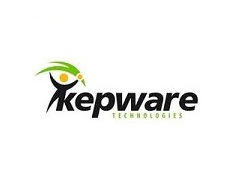 Kepware® Technologies, a software development company focused on communications for automation, today announced both strategic updates to its Local Historian Plug-In and key technology partnerships that enable on-site data visualization and reporting. Featured in KEPServerEX® version 5.17 (which will release on February 24, 2015), the enhanced Local Historian Plug-In will include support for aggregates.
Kepware® Technologies, a software development company focused on communications for automation, today announced both strategic updates to its Local Historian Plug-In and key technology partnerships that enable on-site data visualization and reporting. Featured in KEPServerEX® version 5.17 (which will release on February 24, 2015), the enhanced Local Historian Plug-In will include support for aggregates.
The Local Historian is a flexible, easy to use, and cost-effective solution designed to solve tactical data historization challenges. With the release of KEPServerEX version 5.17, the plug-in will support OPC Historical Data Access (HDA) processed read requests. The processed read requests shift the heavy data computation load from the client to the historian server, minimizing the network load from each request. The updates support widely used processed read requests, including Interpolative, Time Average, Total, Average, Minimum Actual Time, and Maximum Actual Time.
Kepware announced key partnerships to help customers optimize their data analysis through third-party visualization and reporting solutions. The Local Historian's design decouples data storage from analytics, reporting, and trending tools so users can choose the solution that best meets their unique needs.
"Since the October 2014 launch of our Local Historian Plug-In, the response from the industry and our customers has been overwhelmingly positive," said John Harrington, Director of Product Management, Kepware. "Largely influenced by customer feedback and requests, Kepware worked quickly to update the plug-in to best address common use cases. We are also pleased to endorse the visualization and reporting solutions with which we have tested the Local Historian, as we feel that they represent many of the industry's most reputable organizations and products."
The Local Historian Plug-In supports high-speed logging to 10 milliseconds and tiered licensing for up to ten thousand tags. Open standards allow locally-stored data to be accessed from multiple clients with no additional cost per client connection.
Air Jordans